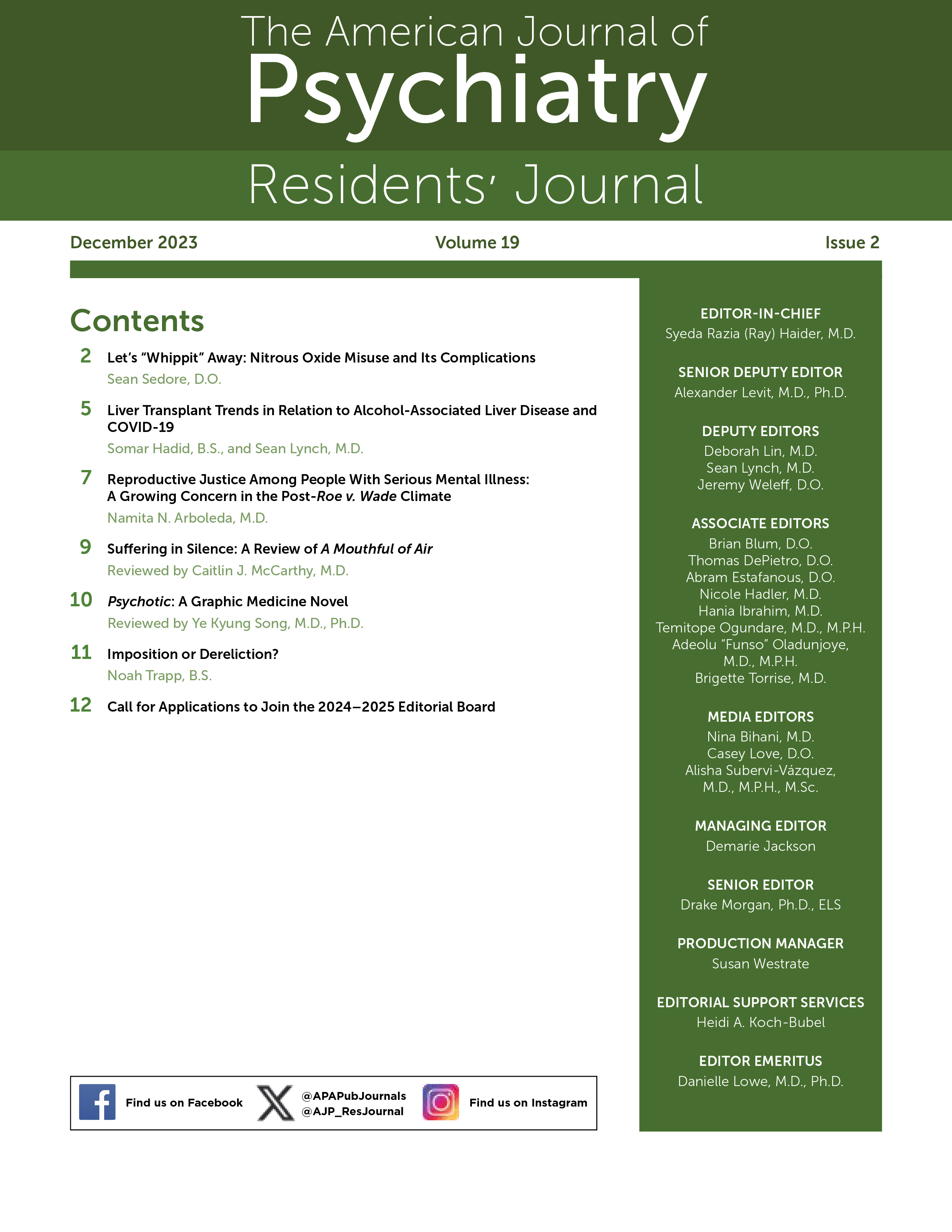Imposition or Dereliction?
“Are there any cases you’d like to debrief about?” the psychiatrist asked on the last day of my rotation. “Yeah, there’s one,” I said, “but she isn’t really my patient.”
For the past year, I had been watching a woman die, or at least I thought she was dying. Every day—in the same ragged sweatsuit with only the scaffolding of the human form beneath—she plodded up our gym’s Stairmaster, gaunt, hollow, detached, and determined. Even in that psychiatrist’s office, if I closed my eyes, I could see her.
Step. Pause. Step. Pause. Step. Pause.
Each time I went to the gym—regardless of time, day, or duration—there she was. I never meant to intrude on some grim spectacle, but the more I tried to put it out of my mind, the more I found myself thinking about it. What business was it of mine what she did? And yet, why would an emaciated young person spend upwards of 8 hours per day engaged in lethargic cardio? I mapped out the differential diagnoses in my mind. While the obvious answer seemed unavoidable, it was inappropriate to assign a diagnosis without all the facts—facts I could not obtain. The gym was not a clinic. She was not my patient. Here, outside the bounds of a provider-patient relationship, we were at an impasse.
Step. Pause. Step. Pause.
I could employ technical terminology to intellectualize the issue. I could say the pretest probability of an eating disorder was high and avoid assigning the dreaded diagnosis altogether. All in an effort to be polite, but to what end? I wasn’t sure. Medical school had taught me many things, chief among them to be respectful, with being inquisitive a close second. Here, those principles were impossible to reconcile. I couldn’t gather data without imposition, though passivity might be a dereliction of duty.
Years of being told to pay attention to everything had predictably resulted in a trainee who paid attention to everything. In the hospital, this worked quite well. Outside, it complicated things. I didn’t know what to do after passing by strangers and noticing the asymmetric edema from a saphenous vein graft or the grating chorus of chronic bronchitis, as if these people were walking board questions to answer correctly. In the real world, their issues were phenomena to observe as a stranger and do nothing with.
Step. Pause.
Before medical school, I knew little about anorexia. Once I was taught what to look for, I found it, and it burdened me. I talked about my dilemma with any physician who would listen. Some suggested I was obligated to talk to the woman, insight be damned. Others scoffed at the suggestion. “Do you talk to every smoker you meet on the street? They’re dying too.” I didn’t. This felt different somehow, although I couldn’t articulate why. Perhaps this would just fade with time, as so many things do. I wasn’t sure I wanted it to. The concern felt justified, and I wasn’t ready to let it go just yet.
Back in the psychiatrist’s office, his brow briefly furrowed as he pondered my predicament. Then, he looked up, and through a wry smile, he responded. “I’m not sure I have a great answer for you. After all, she’s not my patient.”
The other day, I went to the gym. For the first time, the woman wasn’t there. I would like to think she got help, though I will have to make peace with not knowing. Perhaps I should have said something.



